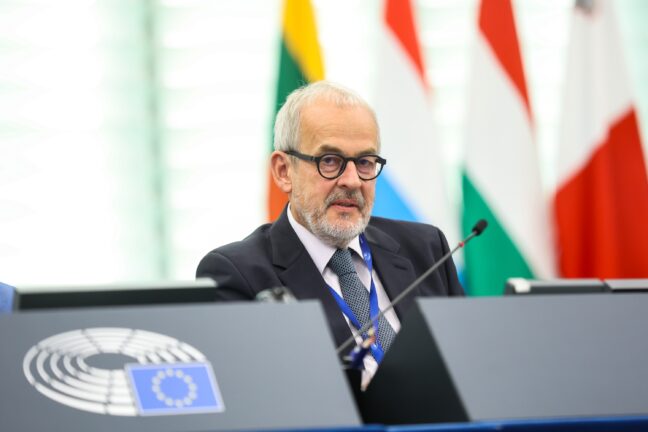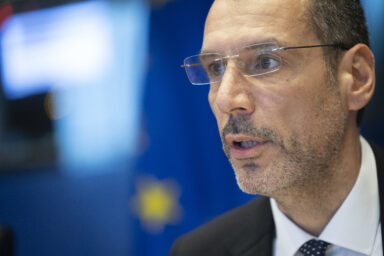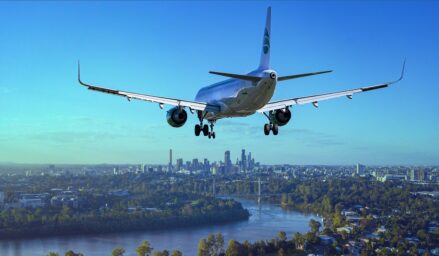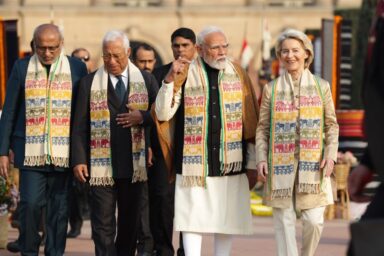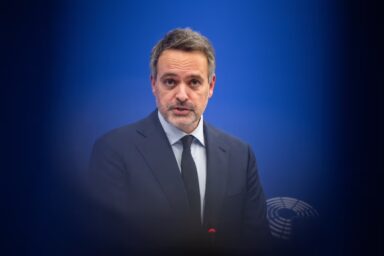One of Europe’s most pressing challenges is military mobility: ensuring that troops and heavy equipment can move quickly across borders and infrastructures in times of crisis. MEP Roberts Zīle (ECR/LAT), Vice-President of the European Parliament has taken on the task of rapporteur for the Parliament’s initiative report on the subject. He spoke about the challenge with EU Perspectives.
With a background in economics and transport, as well as decades of political experience both in government and in Brussels, Mr Zīle is now pushing for what some generals have already dubbed a ‘military Schengen’, a framework to cut red tape, harmonise procedures, and adapt Europe’s infrastructure to military needs.
What is the current state of play on military mobility in Europe?
We are at a crucial stage. I am not a defense expert—my background is in economics and transport—but as a Latvian I am very aware of security issues. That’s why the TRAN committee nominated me as rapporteur on the military mobility report, together with my Lithuanian colleague Petras Auštrevičius. We drafted the text in July and are now waiting for amendments from other MEPs. Our aim is to finalise it in committee and plenary before the end of the year. It’s a political signal, a way of putting pressure on the European Commission, which will present both a legislative proposal and a communication on military mobility later this autumn.
Why is such an initiative necessary?
The situation on the ground is much worse than we expected. While preparing the report we spoke with Commissioners, military officials and representatives of the transport sector. What we discovered is that European armed forces face enormous obstacles just to move troops and equipment. Procedures for convoys, for instance, are still paper-based and differ from country to country. Some examples are almost absurd: even the position of flags on vehicles changes depending on which border you cross.
You might be interested
Then there’s the infrastructure issue: bridges that cannot withstand the weight of tanks, the lack of flatbed railcars to carry heavy machinery. On the railway side, the situation is alarming. We need diesel locomotives for non-electrified lines in frontline countries, but manufacturers have not invested in diesel technology for ten years, focusing instead on green locomotives. Even if they restarted production now, it would take years. The reality is that Europe is far from being able to move forces quickly in a crisis.
And what about financing?
The Commission has proposed €17.5bn for military mobility in the next Multiannual Financial Framework. But let’s remember: seven years ago, it proposed €6bn for the same item. The Council cut that almost to zero, and eventually only €1.7bn remained. Those funds are already exhausted as of 2023–24. So, even if we talk about higher figures now, we cannot exclude the possibility that the Council will once again cut them drastically. The risk is that these numbers remain more political announcements than real money. In addition, most of the new resources will come through the SAFE program in the form of loans – not fresh grants. Member states will need to repay them. So we are not talking about immediately available funding.
Your report mentions a ‘military Schengen’. What does that mean?
It’s a term used by some generals as well. The idea is to create a space without bureaucratic barriers for troop movements. This doesn’t require billions. What it needs is simplification, digitalisation of procedures, removing administrative obstacles. These are the so-called low-hanging fruits. We expect the Commission to harvest them in its upcoming proposal.
Regarding Readiness2030: wow long will it take for Europe to be truly ready?
Unfortunately, even if we boost investment today, infrastructure timelines are long: bridges, railways, and transport lines take 20 to 30 years to upgrade. Meanwhile, Russia will not wait for Europe to catch up. Since the invasion of Ukraine, Moscow has learned its lessons, accelerated technology development, and taken military matters more seriously. Europe cannot afford to be late.
